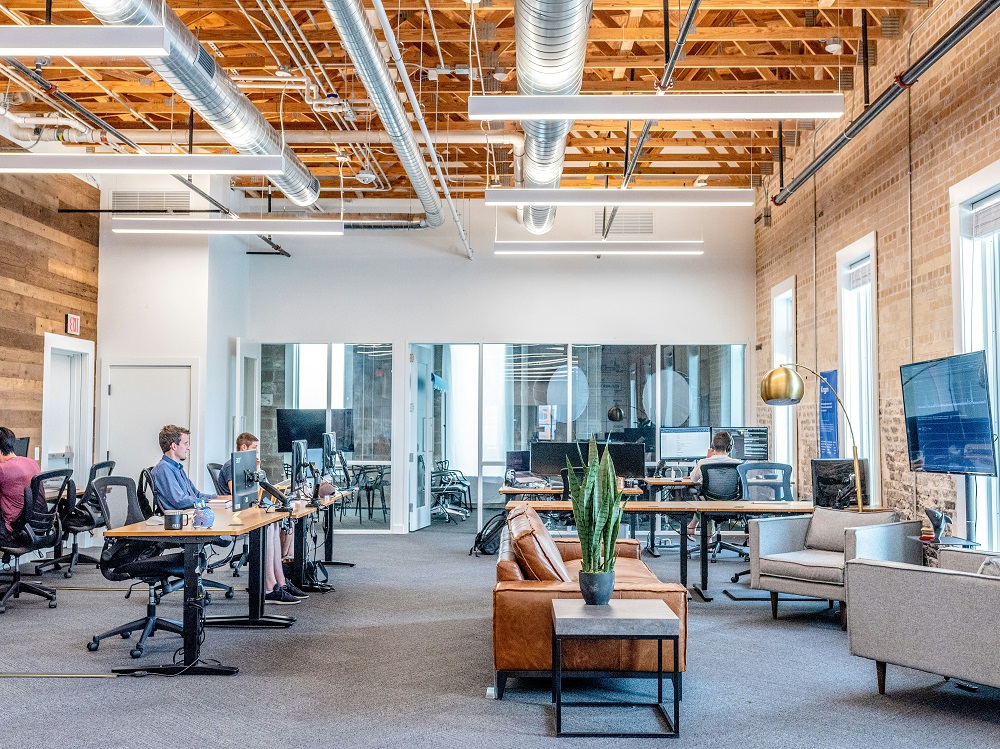Gen Z is well-versed in tech skills and has aspirations different from what millennials used to pursue. Given the revival of work-life balance considerations, younger professionals have asserted the need for more flexible work environments. Accordingly, global organizations’ human resource (HR) development strategies must undergo a much-needed transformation. Otherwise, companies might fail to retain the top talent from this generation. This post will highlight the nuanced characteristics of Generation Z, helping leaders, HR professionals, and job applicants understand the closely related hiring trends in 2025.
Read Also - What is Generation Z and Gen Z Age Range
Generation Z Introduction
These digital natives have interacted with modern technologies and mastered the confusing world of social networking sites. Their humor embraces open-mindedness while prioritizing the link between pop culture references and current problems plaguing the world. However, their work ethics rarely align with their predecessor’s definitions of discipline, loyalty, stability, and consistency.
Gen Z Meaning
The social generations include the lost generation, which consists of individuals born between 1883 and 1900. Later, you might notice the silent generation, baby boomers, generation X, and millennials. Gen Z refers to people who came to this world near the end of the 20th century after the millennials or Generation Y.
Their lifestyles coincided with an era of rapidly improving technologies. As such, generation Z is more likely to welcome novel tech tools like augmented reality (VR) or gesture-based user interface controls.
Read More: Fastest Growing Careers in the US in 2025
Who is Gen Z?
Researchers often classify individuals born between 1997 and 2012 as Gen Z members. Sociology, cultural studies, psychology, public policy, economics, and entertainment stakeholders genuinely conduct surveys to ascertain the unique expectations and problems that impact Generation Z. That is why governments, educational institutions, private businesses, and non-governmental organizations can better interact with these younger, techno-savvy individuals.
For example, Gen Z loves spending time in virtual settings simulating social experiences.
Unfortunately, while it creates a remarkable illusion of connectedness, spending excess screen time for passive media consumption can backfire. In addition to the adverse impact on vision, generation Z individuals are at a greater risk of comparing their lives with someone else’s curated social profiles.
Declining attention spans and the fear of missing out (FOMO) can lead them to make hasty purchases. They are more conscious about getting a higher education. Still, this generation is more likely to encounter many challenges in job hunting, even with multiple degrees or diplomas. Some Gen Z individuals claim they want to reduce their tech dependence but fear being left behind by more technocratic Generation Alpha.
Generation Z in the Workplace
Generation Z in the workplace is more enthusiastic about experimenting with ideas from distinct domains of knowledge. Meanwhile, some industries require longer to upgrade their workflows and integrate advanced technologies to Gen’s liking.
This delay in modernizing business operations has also prompted several college graduates to pursue alternative careers unrelated to their academic training. They want jobs demanding better digital literacy and free of obsolete office norms. For instance, these individuals frown upon the usage of paper-based filing systems and prefer the digital transformation of most workflows.
Read More: 10 Most High-Demand Skills for the Next 10 Years & Future (2025 - 2026)

Generation Z Hiring Trends
Generation Z, comprising the youngest entrants to the workforce, has very unique preferences and expectations. Therefore, Gen Z hiring trends include creating healthy work environments to attract and retain them. Notable aspects encompass workforce flexibility, digital-first settings, and organizations with solid progressive values.
Accordingly, the younger, more connected professionals want to work for brands that boldly pursue diversity, inclusion, and sustainability initiatives.
This tech-savvy cohort also values professional growth. In other words, Generation Z individuals proactively seek versatile roles that offer learning opportunities and clear career paths.
These circumstances justify employers leveraging social media to gamify recruitment and talent curation. Besides, organizations invest in AI-driven work modernization or digitalization platforms to attract and engage Gen Z candidates.
Remember, Gen Z tends to require more authentic communication. So, collaborative work cultures surpassing conventional hierarchies of authority will help sustain your workforce. Companies need to devise and revise a suitable talent retention strategy to attract Gen Z. To this end, they must develop dynamic and purpose-driven workplaces.
What Age is Gen Z?
Generation Z, also known as Gen Z, encompasses all individuals born between 1997 and 2012. However, this definition or age attribution range might differ across scholarly articles, industry magazines, and news publications. In short, you can encounter slightly different age ranges depending on the referred source.
As of 2025, this means their ages fall between about 13 and 28. This generation comes after Millennials. It is frequently characterized by its upbringing in a fully digital world. While it is very tech-sensitive, carrying titles like digital natives, it surpasses Gen Y or millennials in adapting to rapid changes.
Gen Z engages in the workforce and academia with a fresh outlook resulting from novel influencers over social media. Given the rise of live streaming, generation Z enjoys endless exposure to multicultural world events. It is no wonder that workers belonging to this social generation have a great enthusiasm for diversity and sustainability.
Gen Z’s Salary Expectations in 2025
In 2025, the salary expectations of Generation Z indicate their concentration on security and work-life balance. They want fair pay according to their skills. Simultaneously, they recognize several obstacles to thriving amidst the competitive job market. Compared to Millennials, inflation, and volatile economic conditions have put more pressure on Generation Z due to fluctuations in hiring trends.
Irrespective of the region, Gen Z welcomes transparency in pay structure. It witnesses many liabilities due to student loans and prioritizes benefits that help settle them quickly. These professionals are twice as conscious about wellness programs and retirement plans as Gen Y professionals. After all, they cannot take these facilities for granted.
Many going into leadership or specialized roles expect pay that reflects their efforts. Gen Z is also more likely to monitor salary benchmarks based on online employee-employer forums.
As a result, to attract and retain Gen Z talent, employers will need to offer competitive pay. Multiple opportunities for growth, like internal transfers and higher education support, are essential to Generation Z. Ultimately, these professionals refuse to work for an organization that neglects to adopt sustainable development goals and attracts bad press due to poor work-life balance assurances.
Gen Z vs. Millennials Hiring Trends
Gen Z and Millennials are two generations with a wide difference in hiring preferences and expectations at the workplace.
- Gen Z, born 1997-2012, wants flexibility, purpose-driven roles, and digital-first environments. That is why short-term contracts or freelancing allure them. It also focuses on mental health support and team diversity.
- Millennials, born 1981-1996, consider stability, career development, and collaborative in-person meetings to be essential.
- Although Millennials may prefer face-to-face interactions, Gen Z does better in virtual settings. It expects technology integration to be seamless.
- Both generations want a work-life balance. However, Gen Z wants authenticity as well as sustainability.
Given the dissimilarity between Gen Z and Millennials (Gen Y), recruiters must tweak their talent hunt strategies based on appropriate hiring trends in 2025. Indeed, building a work culture that attracts and nourishes both Generation Z and Y is a task that is easier said than done.

Gen Z Statistics for Employers in 2025
- By 2025, Generation Z will comprise nearly 30% of the global workforce. Therefore, attracting them will be a significant aspect of finding techno-savvy employees.
- 65% of Gen Z employees find workplace flexibility in the remote or hybrid model to be the most important when looking for a job.
- About 75% consider diversity and inclusion when deciding which company to work for.
- Similarly, 70% of individuals in this social generation want a personal fit with their job values, such as responsible waste disposal and merit-linked growth opportunities.
- Financial security matters a lot to Gen Z, with 60% seeking competitive salaries and benefits such as student loan debt.
- The tech-savvy of Gen Z will also create a demand for digital-first recruitment processes.
In response, brands have already standardized the use of Microsoft Teams or Zoom Meetings to support the future of work. Likewise, Slack, Flock, TeamViewer, and Google Workspaces (formerly G Suite) have their dedicated enterprise clients. These measures will help emphasize and adopt hybrid working conditions.
Gen Z’s Workplace Priorities in 2025
The remarkable rise of hybrid and fully remote models has affected the hiring trends in 2025 as more HR agencies advise employers to create more flexible work conditions. The global healthcare crises in 2019-2021 also imply that Gen Z and Generation Alpha might gladly work for lower wages if remote roles are available.
Gen Z’s priorities contrast with the values of Millennials, who focus on wealth accumulation at the expense of physical and mental well-being. For example, those born between 1997 and 2012 have specific boundaries about weekly work hours. They want purpose-driven job descriptions while firmly refusing to sacrifice their quality time with loved ones for additional workload.
Merit-based promotions are vital to retaining Generation Z individuals. They are less likely to respect those who enjoy promotion purely due to seniority. Gen Z professionals want their superiors to possess greater knowledge of modern tech regardless of age or years of industry exposure.
This social generation is not a fan of paperwork involving physical copies. It does not care about how to operate the copier machines and troubleshoot printers at work.
Consequently, Generation Z professionals will convert as many activities into digital workflows as humanely possible. They love hosting job-critical documents in cloud storage systems. Later, they share ad-hoc links with customized access-usage privileges instead of sending carbon copies and waiting for signatures.
Final Thoughts - Gen Z Hiring Trends
Gen Z hiring trends in 2025 demonstrate how the advent of the internet, socializing websites, artificial intelligence, and cloud computing has affected all stakeholders. Ethical alignment, a sense of serving a meaningful purpose, and a discrimination-free workplace culture matter to Generation Z. Therefore, more employers have increased their marketing efforts to highlight the modern values they want their brands to be associated with.
While this social generation acknowledges the drawback of significant screen time, its techno-savvy attitudes promise more humane working conditions. Virtualized modes of collaborating with anyone from any ethnic group are crucial to its members.
Gen Z is more likely to accept less compensation to spend more time with friends and family.
Accordingly, organizations worldwide are trying to decode the puzzle of correctly modifying employee retention strategies without inviting productivity troubles.
These developments indicate a bright future where discrimination due to gender, birthplace, race, first language, or agism will be nowhere to be found. In other words, Generation Z, accompanied by Gen Alpha, will assist brands in effectively meeting sustainable development goals with modern tech advancements.
As a leading market research firm, SG Analytics empowers businesses with comprehensive insights into demographic variables, branding risks, concept testing, and growth opportunities. Contact us today if you want to prepare for tomorrow’s workplace challenges, compliance dynamics, and competitive threats with the power of analytics.
About SG Analytics
SG Analytics (SGA) is an industry-leading global data solutions firm providing data-centric research and contextual analytics services to its clients, including Fortune 500 companies, across BFSI, Technology, Media & Entertainment, and Healthcare sectors. Established in 2007, SG Analytics is a Great Place to Work® (GPTW) certified company with a team of over 1200 employees and a presence across the U.S.A., the UK, Switzerland, Poland, and India.
Apart from being recognized by reputed firms such as Gartner, Everest Group, and ISG, SGA has been featured in the elite Deloitte Technology Fast 50 India 2023 and APAC 2024 High Growth Companies by the Financial Times & Statista.









